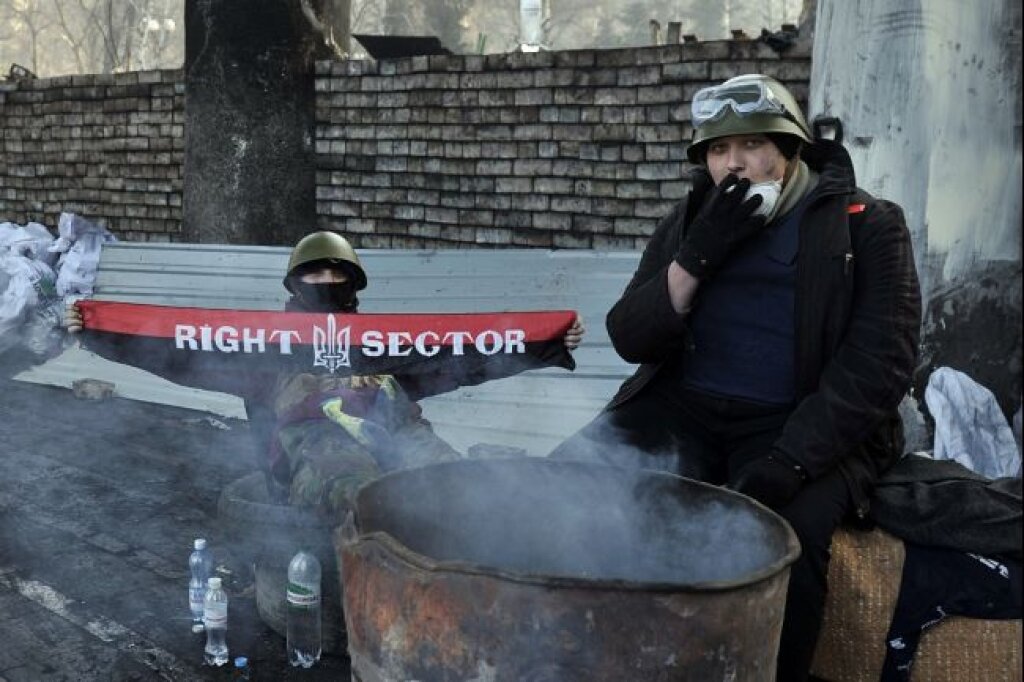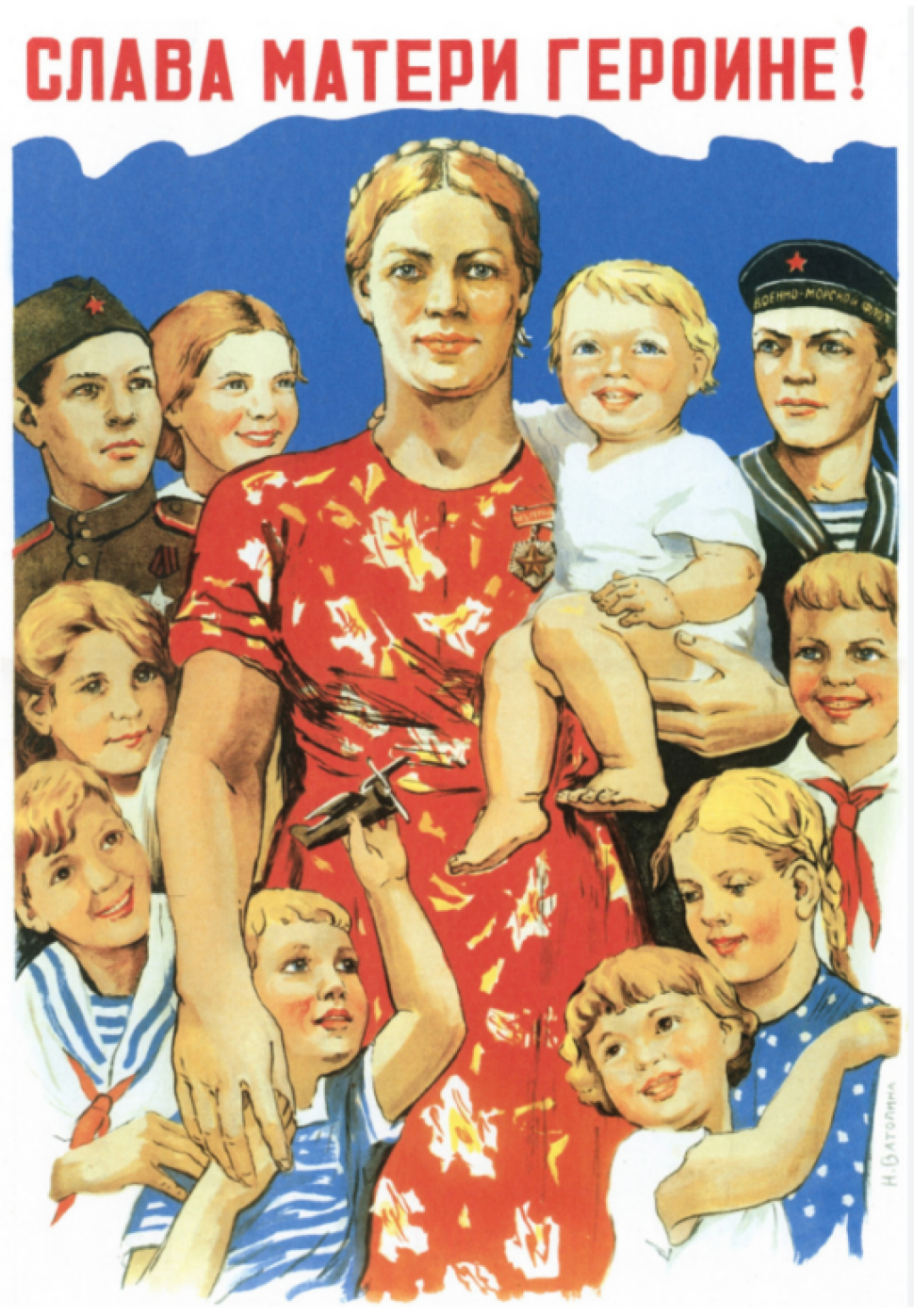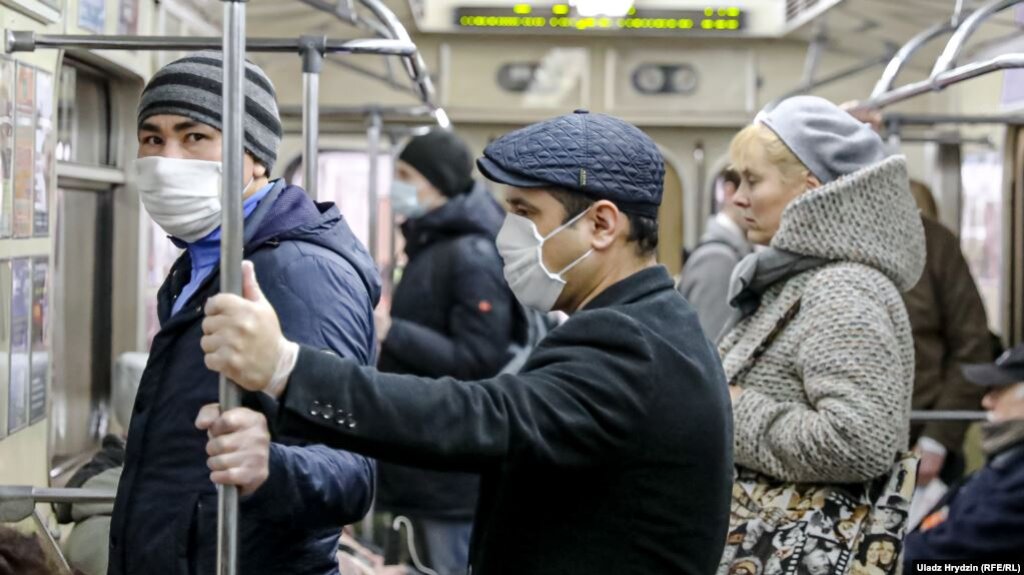Kathryn David is a research assistant at the Holocaust Museum, and was a 2012 Fulbright recipient in Ukraine. She will be joining the doctoral program in History and Russian & Slavic Studies at NYU in the Fall.
The 2014 Ukrainian elections turned out mostly as predicted. Strongly favored candidate Petro Poroshenko won decisively. Violence prevented free and fair elections in many parts of Eastern Ukraine, as anticipated. Yet the media seemed to be surprised by one election outcome: the failure of Ukraine’s right-wing parties to secure significant votes.
Ukraine’s two right-wing candidates, Oleh Tyagnibok (of the ultra-nationalist Svoboda party) and Dmitry Yarosh (of the protest-born Right Sector party) each got one percent of the vote. In comparison, the European Union saw an alarming surge in their right-wing parties. In France, for example, the National Front won an unprecedented 26 percent of the vote.
The fact that Ukraine’s EU neighbors, a group that Ukraine one day hopes to be a part of, experienced such a divergent outcome in their elections is an intriguing phenomenon when considering the future for Ukraine. Ukraine’s right-wing parties’ popularity is decreasing while in EU member states such as France, Greece, Britain, and Denmark it is increasing exponentially. In Ukraine’s 2012 parliamentary elections, Svoboda gained 8.5 percent of the vote, compared to one percent this year.
Why is Ukraine bucking the European trend? What about the Euro Maidan movement made the platforms of candidates like Tyagnibok less appealing to the citizens of Ukraine? These questions deserve further investigation, yet the majority of the media coverage on the elections is not asking these questions. Instead the media’s take can be summed up by this Forbes headline: “Ukraine Election Results Discredit Kremlin Propaganda.” The Nation adds “The scary fascists who, according to Russia, have taken over Ukraine since the ‘coup d’état’ and ousted the former president didn’t do too well.”
From the beginning of the Euro Maidan protest movement, Vladimir Putin vilified the movement as “fascist” and “ultra-nationalist.” This is not surprising, given that the tactic of discrediting Ukrainian self-determination as “fascist” has enormous precedence in the historical relationship between Russia and Ukraine. In addition, Putin is not exactly known for an ideology rooted in reality when describing world affairs.
So why do journalists and pundits seem fixated on pointing out that Putin’s predictions didn’t come true? The election results in Ukraine deserve analysis and Putin’s statements ought to be reported as well, yet the fact that the media’s main conclusion seems to be “blatant propaganda turns out to be false” is troubling.
In my view, there are two factors to blame. First there is a kind of “anti-Russian schadenfreude” at work, similar to what The New Republic’s Julia Ioffe described happening at the Winter Olympics. The West enjoys gloating that we were right about the Ukrainian elections and Putin turned out to be wrong, just as we gleefully tweeted about hotel snafus in Sochi.
Yet, I see a second, more influential factor at work. I believe that many of us throughout the West were worried Putin might be right. The Soviets were not the only ones to paint Ukrainians as fascist. In the U.S. many of us associate Ukrainians with anti-Semitism and Nazi collaboration.
This reputation, like many stereotypes, has its roots in truth. Historically Ukrainians, like Russians, had anti-Semitic beliefs that resulted in widespread pogroms throughout Eastern Europe. During World War II, UPA (The Ukrainian Insurgent Army) teamed up with Nazi forces to expel Soviet occupiers. For many Ukrainians this was an uneasy alliance necessary to throw off the yoke of Soviet oppression. For others it provided an excuse to finally rid Ukraine of the scourge of Jews and Poles through mass murder. In today’s Ukraine, Svoboda celebrates this history, most notably by praising Ukrainians for fighting “Muscovites, Germans, Jews, and all the other scum” during WWII.
Fortunately, the protests of the Euro Maidan movement were not a continuation of this difficult history. Every protest has its fringe elements, but by and large Euro Maidan was a movement that stressed how a better Ukraine be achieved through equality and unity for ethnic Ukrainians, ethnic Russians, Jews, women, Crimean Tatars, and other previously disenfranchised groups. Putin, however, dismissed this tone as a farce. And given our surprise at the election results, we were all starting to believe him.
Ukrainians still have a long way to go to confront their own history and acknowledge that they have been both the oppressed and the oppressors. The election results show that Ukrainians are willing to begin this journey and are actively trying to fight these stereotypes.
However, we in the West need to confront our own prejudices about the diverse peoples of Eastern Europe as well. The more we continue to see Eastern Europe through Cold War stereotypes, the easier it is for Putin’s propaganda to begin to make sense. America and most of Europe can agree that Putin’s ideology is fueled by flawed and dangerous values. Let’s not allow Putin’s outlook to characterize our view of the Ukrainian people.



